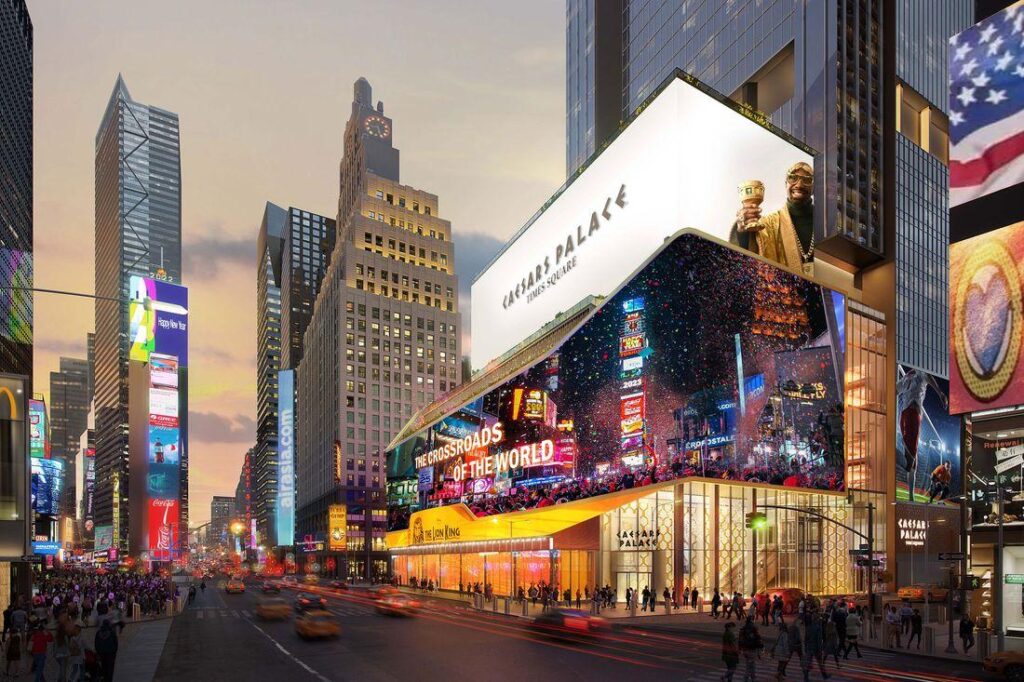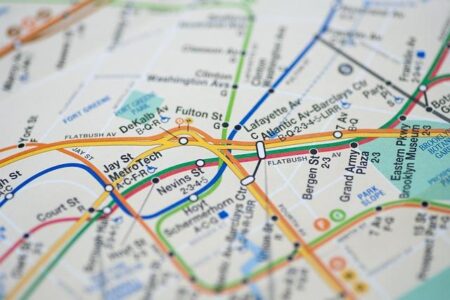Evaluating the Proposal for a Casino in Times Square: Balancing Opportunity and Risk
Weighing Economic Prospects Against Community Challenges
The suggestion to establish a casino in the heart of Times Square has ignited a complex discussion among city leaders, residents, and urban development experts. Supporters emphasize the potential for increased employment opportunities and a boost in tourism revenue. However, these optimistic projections often overlook the economic vulnerabilities faced by local inhabitants, many of whom are already burdened by escalating living expenses. The neighborhood’s small businesses, which contribute significantly to its unique identity and economy, could face displacement or diminished patronage due to competition from large-scale gambling enterprises and their corporate affiliates.
Beyond the surface-level financial benefits, the introduction of a casino may trigger hidden economic costs, including heightened crime rates and amplified demand for social and health services. A closer examination of economic indicators reveals several concerns:
- Fluctuating tax income: Initial revenue surges often give way to prolonged periods of stagnation or decline.
- Escalating social welfare expenses: Increased need for addiction counseling and law enforcement resources.
- Pressure on local commerce: Rising rents and shifting consumer preferences threaten small business viability.
| Economic Aspect | Likely Consequence |
|---|---|
| Employment Opportunities | Predominantly temporary and low-paying jobs |
| Tax Revenue | Inconsistent and often overprojected |
| Health of Local Businesses | Decline due to intensified competition |
| Demand for Social Services | Increased financial and operational strain |
Public Safety Concerns and Crime Trends Linked to Casinos
The establishment of a casino in Times Square is likely to place additional burdens on public safety infrastructure. Casinos typically attract large crowds around the clock, which can lead to a rise in incidents requiring police attention. Research from cities that have recently opened casinos indicates a marked increase in minor offenses such as shoplifting and property damage, alongside more serious crimes connected to illegal gambling activities. Given Times Square’s status as a major tourist destination, the area could become a hotspot for criminal elements exploiting the anonymity and chaos that a casino environment might foster.
Reported crime increases following casino inaugurations in various cities:
| Type of Crime | Percentage Increase | City Example |
|---|---|---|
| Petty Theft | 28% | Reno |
| Assault | 20% | St. Louis |
| Drug-Related Offenses | 35% | New Orleans |
Additionally, casinos can inadvertently nurture environments conducive to underground criminal enterprises, including money laundering, illegal loan operations, and unregulated gambling. The potential for violent confrontations related to gambling debts or territorial disputes is a serious concern. Law enforcement agencies may find their resources stretched thin, complicating efforts to maintain public order and protect both residents and visitors.
- Increased funding requirements for police departments to address rising crime rates
- Longer emergency response intervals due to congested streets and higher incident volumes
- Need for specialized task forces to tackle casino-associated criminal activities
Infrastructure Overload and Public Service Challenges in a Crowded Urban Hub
Times Square already experiences immense pedestrian and vehicular traffic daily, pushing its infrastructure to near capacity. The addition of a casino would intensify these pressures, necessitating accommodation for increased visitor numbers, extended hours of operation, and more frequent deliveries. Critical systems such as public transit, sewage, and emergency services would face heightened demand, potentially leading to service delays and operational breakdowns. The area’s street network, often congested during peak times, risks becoming gridlocked, causing frustration for both residents and tourists.
Beyond physical infrastructure, essential public services like policing and sanitation would require significant expansion to manage the increased activity and maintain cleanliness. Key anticipated impacts include:
- Augmented police deployment: To oversee larger crowds and ensure safety.
- Heightened sanitation needs: Increased waste generation demanding more frequent collection and street cleaning.
- Emergency services delays: Longer response times due to congestion and higher call volumes.
- Overburdened public transit: Subway stations and buses facing capacity challenges.
| Infrastructure Element | Current Usage | Projected Increase | Potential Issues |
|---|---|---|---|
| Subway Ridership | Approx. 470,000 daily entries | +35% | Severe overcrowding, delays |
| Police Patrol Units | 22 per shift | +45% | Resource depletion, slower response |
| Sanitation Operations | 5 daily street cleanings | +55% | Increased litter, sanitation challenges |
| Emergency Response Time | 5.5 minutes average | +30% | Delayed medical and safety interventions |
Guidelines for Responsible Urban Growth and Zoning Practices
To foster sustainable urban development, city planners and decision-makers must adopt policies that harmonize economic ambitions with the welfare of local communities. This involves enforcing stringent zoning regulations that restrict the proliferation of high-impact commercial ventures, such as casinos, in densely populated and culturally significant areas like Times Square. Encouraging mixed-use developments that support small businesses, affordable housing, and green spaces can help preserve the neighborhood’s unique character while promoting balanced growth.
Recommended policy actions include:
- Robust community involvement: Ensuring public input is integral to the approval process for major projects.
- Comprehensive environmental assessments: Evaluating potential impacts on traffic, noise pollution, and air quality before project initiation.
- Incentivizing eco-friendly construction: Offering tax benefits or grants for developments incorporating sustainable materials and green infrastructure.
- Regulating entertainment district density: Limiting the concentration of casinos and nightlife venues to prevent social and economic oversaturation.
| Policy Initiative | Anticipated Benefit |
|---|---|
| Mixed-Use Zoning | Encourages balanced and inclusive neighborhood development |
| Traffic and Crowd Management | Reduces congestion and enhances pedestrian safety |
| Green Space Development | Improves environmental quality and community well-being |
Final Thoughts: Is a Times Square Casino Worth the Gamble?
While the allure of economic growth from a casino in Times Square is compelling, the broader consequences for public safety, local residents, and the neighborhood’s distinctive atmosphere raise serious reservations. Policymakers must carefully assess whether the short-term financial incentives justify the potential long-term detriments to community quality of life. Ultimately, the introduction of a casino in this iconic urban center may represent a high-risk venture with costs that outweigh the benefits for New York City’s streets and its people.













